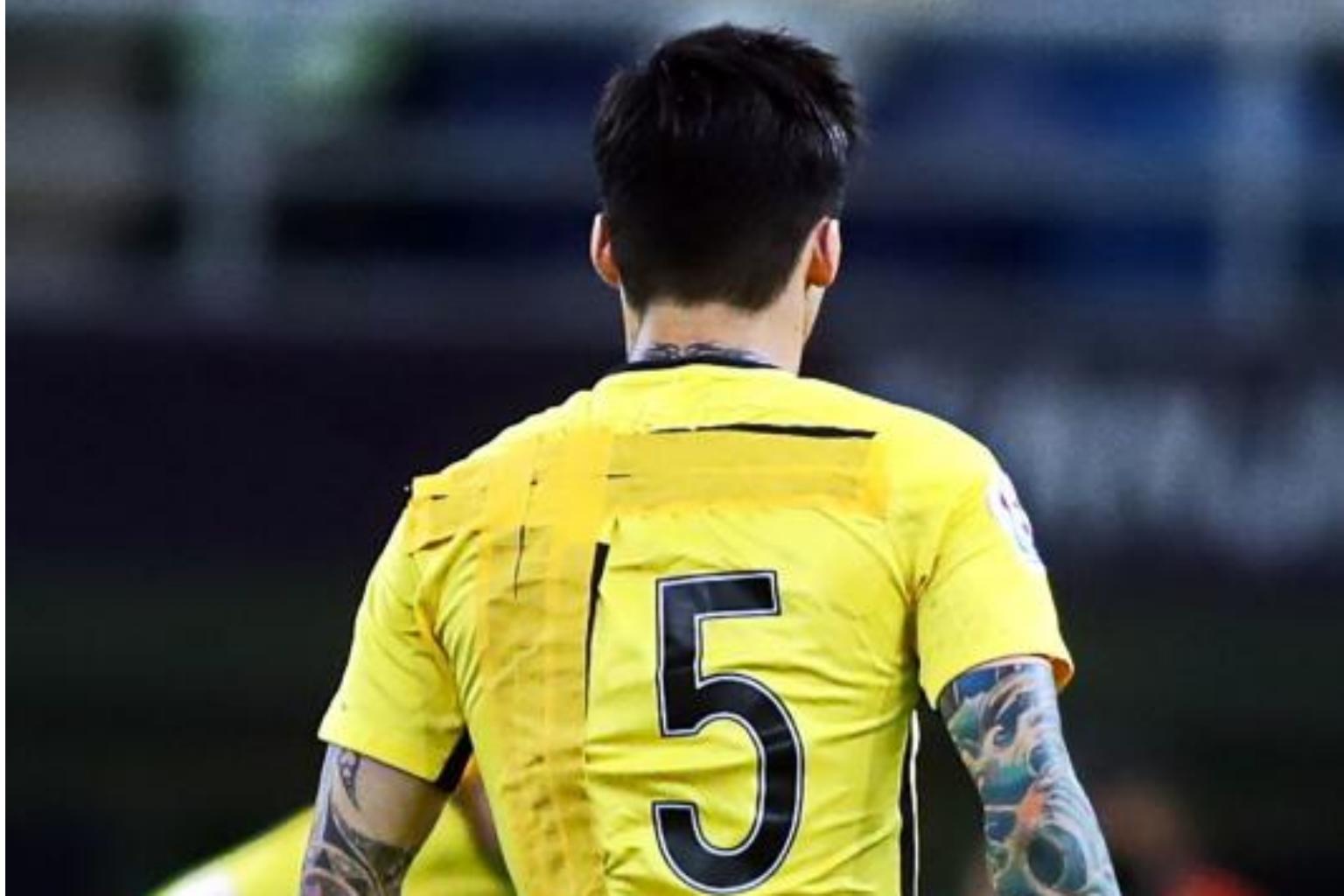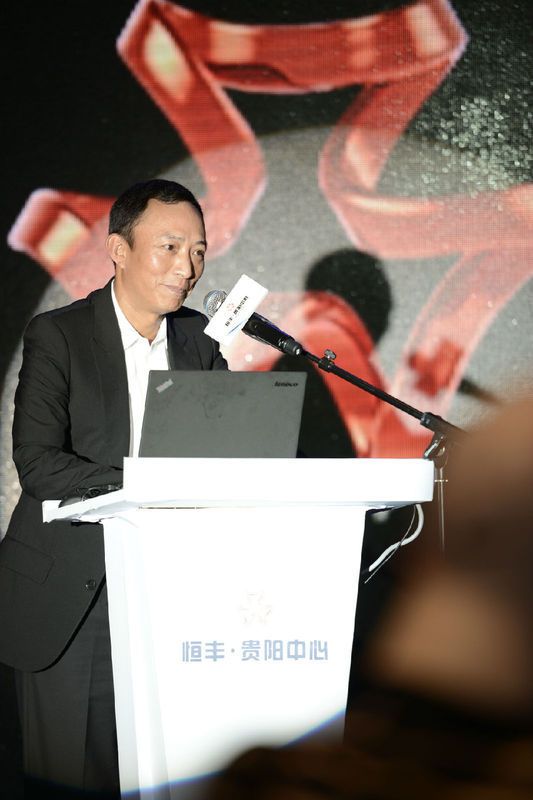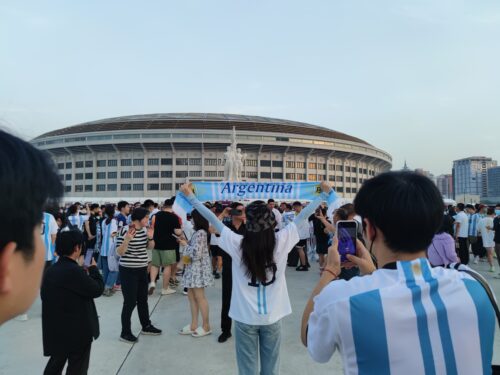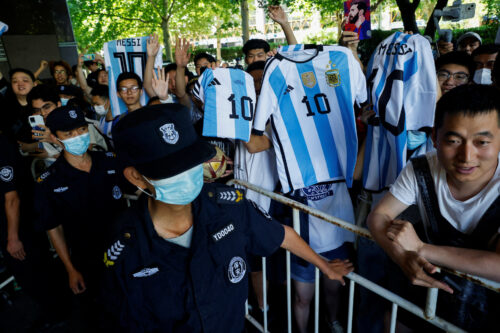CSL update: Guangzhou Evergrande’s kit troubles, Guizhou Hengfeng’s desperation

The China Sports Column is a The China Project weekly feature in which China Sports Insider Mark Dreyer looks at the week that was in the China sports world.
I hate to pick on the easy target that is Chinese soccer — really, I do — but the frustration that comes from watching the sport endlessly generate negative publicity for itself leaves me, a China sports columnist, little option.
Top of this week’s list of complaints is the response by perennial Chinese Super League champions Guangzhou Evergrande to an Asian Champions League game on Tuesday night. Having won the league for the past seven seasons, Evergrande clearly get a lot of things right, but the club’s massive overreaction to what was essentially a small kit issue is evidence that they are still a long way from being a world-class organization.
Star defender Zhang Linpeng 张琳芃 was involved in a collision early in the game against fellow CSL side Tianjian Quanjian, which left him with a nosebleed. The referee, correctly, asked him to change his yellow away shirt, because he had blood on it. But here’s where things got interesting.
Staff couldn’t immediately find Zhang’s backup shirt, so instead came up with a rather creative solution: take the number 15 shirt worn by Zhang Wenzhao 张文钊, use yellow-colored tape to cover both the name and the number 1, leaving the number 5 — Zhang Linpeng’s shirt number.
It took seven minutes to attach about five strips of yellow tape to the shirt — with Zhang Linpeng having to wait on the sidelines until it was finished — but they got it done and sent him back on the field. Fifteen minutes later, they finally located the proper backup shirt and Zhang switched into it.
The game finished goalless — not a bad result considering it was the away tie in a two-legged Round of 16 clash, with the second leg in Guangzhou on Tuesday.
Fortunately for all concerned, the shirt incident didn’t cost Evergrande a goal while Zhang was on the sidelines, with nothing more than a viral round of jokes online from Chinese soccer fans.
But team bosses were not pleased. At all.
The next day, the club announced that five employees — including the team’s general manager — would be fined, with each person’s salary slashed by three levels for “dereliction of duty” and “damaging the club brand.”
Local paper Guangzhou Daily appeared to agree, saying that for all the money that had been spent on the sport over the past few seasons, this incident illustrated the league’s true “amateur” character.
While it shouldn’t have happened, the club’s decision to slash a collective 15 levels off the wage bill is more embarrassing and indicative of the way that Chinese football continues to be run. You get the sense that the perceived “shame” brought to the club was seen as a worse offense than the seven minutes Zhang was off the field.
Guangzhou Evergrande are currently in the unfamiliar position of 4th in the league — though only two points from the top — after a surprising 3-0 defeat last weekend to Dalian Yifang. It was Dalian’s first win of the season and moved them off the bottom of the table, above Guizhou Hengfeng.
Guizhou’s solution for getting out of trouble has been almost as unusual as Evergrande’s tape creativity.
With just one win in their opening nine games, boss Wen Wei 文伟 has promised to give the players a 10 million yuan ($1.5 million) cash bonus if they win either of the next two games. He’ll even give them two million yuan if they tie.
But there are just two problems.
Should they lose the games, they will be fined one million yuan — or 33,000 yuan each. Then there’s the matter of the opponents. They face Shanghai SIPG — who are currently top of the league — at home on Saturday, before a lengthy trip to a Dalian team that appears, finally, to have found its feet after its own poor start.
Wen said his move was an attempt to unite the team, and the players, after being softened up by an expensive dinner, have agreed to the terms of the deal. But with greed being the apparent motivator, it will be interesting to see the effect on the team if, as is likely, they end up still rooted to the bottom of the table and collectively lighter in the pocket.

The draw for next year’s AFC Asian Cup has been made, and China is in a group with South Korea, Kyrgyzstan, and the Philippines. The Koreans are the clear favorites in Group C, but China should still progress into the knockout stages: Under the format of the newly expanded tournament, four of the six third-place teams will qualify for the next round, meaning that even if China loses to Korea and Kyrgyzstan — a team that sits just two places below China in the latest FIFA rankings — it still has a decent shot at advancing.
Elsewhere, 2022 World Cup host Qatar has been drawn in a group with geopolitical rivals Saudi Arabia, while Iran and Iraq will square off in the UAE when the tournament gets underway in January.
https://www.youtube.com/watch?v=LmjIeGqgSJg
China’s impending social credit system, under which citizens will be rated based on a variety of social and economic criteria, has been garnering an increased amount of attention in recent weeks, with Stephen Colbert even featuring it during a Late Show segment. But with the sports industry now a central part of China’s economy, it should come as no surprise that sports in China have also been ordered to embrace the new system, which is due to be fully operational by 2020.
China’s sports ministry has said it wants event organizers and sports federations to use the system, with rewards granted for high-scoring individuals and businesses, while those who pose security risks or cause social harm — such as damaging the environment — subject to blacklisting and other punitive measures. The plan specifies that large-scale sporting events, such as marathons and martial arts tournaments, should expect particular scrutiny because they involve a large number of participants, attract a lot of attention, and often lack effective supervision.
In other words, next time a race organizer hands out bars of soap disguised as energy bars in the runners’ welcome pack — as famously happened at the 2016 Qingyuan marathon — expect someone’s social credit ranking to plummet.
Three other things worthy of your attention this week:
- The New York Times looked at the secretive and exclusive “China Horse Club” in a piece that ticks a lot of boxes: China going global, gambling, money laundering, buying citizenship, and a total lack of transparency.
- ChinaFile showcases a Kenyan sports agent who’s making a name for himself in China by finding elite Kenyan runners to enter marathons across the country in a job in which he’s also a translator, travel agent, motivator, friend, and pastor.
- Finally, this BBC radio documentary profiles a primary school in Gansu province that’s been churning out soccer players in the hopes of turning the country’s World Cup dream into reality.
The China Sports Column runs every Friday on The China Project. Follow Mark Dreyer @DreyerChina





